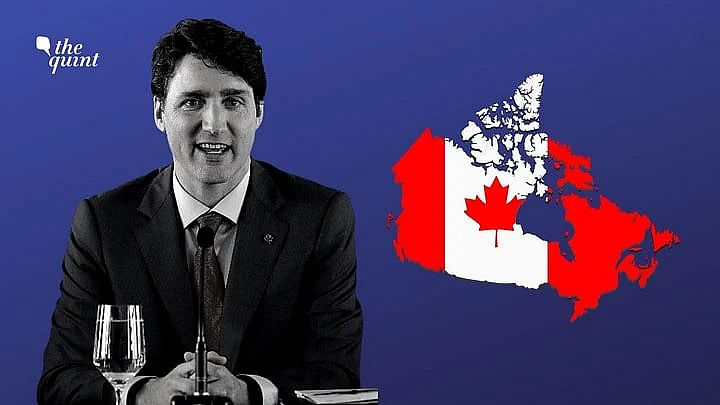After an embattled several months with multiple crises confronting his government, Justin Trudeau, who had been the leader of the Liberal Party for 11 years and the Prime Minister of Canada for nine, resigned from office on 6 January.
He had successfully assumed this office for the first time in 2015 and most recently in 2021. Unfortunately, owing to a host of factors, the sheen that he had so enjoyed in his first two terms in office had all but worn off.
His resignation was not entirely unexpected. In December 2024, his Deputy Prime Minister, Chrystia Freeland, had resigned publicly, stating that Trudeau had not done enough to confront the possible 25 percent tariff that the president-elect of the United States, Donald Trump, has threatened to impose on all Canadian goods exported to the US.
Discontentment Surrounding Trudeau's Leadership
Even prior to Freeland’s resignation, there was a growing body of discontent against Trudeau and his Liberal Party. The troubles had been brewing for some time.
In 2019, both his Justice Minister, Jody Wilson-Raybould, and the President of The Treasury Board, Jane Philpott, had resigned, claiming that they had been unfairly pressured either by him or his close aides not to bring legal charges against a notable Canadian engineering firm, SNC-Lavalin, which had been accused of bribing Libyan officials to obtain lucrative contracts during the regime of Muammar Qaddafi.
The charges of ethical lapses had haunted the prime minister in the wake of these resignations.
Apart from these problems, substantial segments of the population were increasingly unhappy with the high cost of living and the government’s seeming inability to bring prices under control. Consequently, though Trudeau’s three terms in office saw significant achievements, including on such policy issues as addressing the growing threat of climate change and on the fraught matter of indigenous rights, support for him and his Liberal Party had steadily plummeted.
Following his resignation, the Parliament of Canada is now prorogued until 24 March. By this time, the party must select a new leader, and new elections must be held on or before 20 October. At the moment it is unclear who is likely to succeed him as the party leader. Possible contenders include his former Deputy Prime Minister Chrystia Freeland, his current Foreign Minister Mélanie Joly, and a former governor of the Bank of England, Mark Carney.
Whoever wins the nomination to lead the party will have much on his or her hands. The Conservative Party of Canada, the principal opposition party, without a doubt, hopes to capitalise on the groundswell of discontent in the country. It may also assert that it is not only better positioned to tackle Canada’s economic woes but also deal more adroitly with the vagaries of the incoming Trump administration.
At any event, for the foreseeable future Canadian politics will remain in a state of flux.
What Does Trudeau's Exit Mean for Indo-Canada Ties?
In the wake of the Nijjar affair, as is altogether well-known, Indo-Canadian relations have reached their nadir. There is little or no reason to recount the actions that both New Delhi and Ottawa have taken in the aftermath of that fracas. In the absence of a new government in Canada, it is reasonable to surmise that neither side will be in any hurry to try and repair relations.
The reasons for the lack of any initiative from either side are more than apparent. New Delhi, quite reasonably, may argue that given the political uncertainty in Canada, it lacks a partner that can make a credible commitment. On the Canadian side, a lame-duck administration will feel that it has the requisite popular mandate to try and address this extremely politically charged issue. Consequently, until a new government assumes office late this October, expecting any improvement in Indo-Canadian relations is all but fanciful.
That said, if the Conservative Party assumes office in October, the issue may lose some of its salience.
Trudeau’s Liberal Party had relied on segments of the Canadian Sikh community who remain dedicated to the cause of Khalistan. Consequently, his party, to some substantial degree, was beholden to that portion of the electorate.
The Conservative Party, no doubt, enjoys some support from within the Canadian Sikh community. However, they may not be such dedicated supporters of Khalistan. Furthermore, given India’s significance as an emerging economic power and Canada’s share of troubles with the People’s Republic of China on multiple fronts, including the possibility of election interference, a new government may well decide to let bygones be bygones.
How New Delhi chooses to respond to the overtures of a new Canadian government, regardless of its ideological orientation, will have a significant bearing on the course of Indo-Canadian ties.
(Sumit Ganguly is a Senior Fellow and directs the Huntington Program on Strengthening US-India Relations at the Hoover Institution at Stanford University. This is an opinion article, and the views expressed above are the author’s own. The Quint neither endorses nor is responsible for them.)
